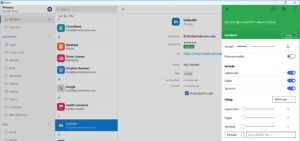The telecoms regulator has fixed call rate at ₦50 per minute for closed user group (CUG) service and barred mobile network operators (MNOs) from data bundling on the telecoms plan as from November 1.
Nigeria’s MNOs like MTN, Glo, Airtel and 9 mobile offer CUG service to customers that allows enrolled subscriber group members to enjoy lower call rates and free on-net calls by paying monthly access fees.
Apart from banning data bundles on CUG plans, MNOs are now restricted to the provision of voice calls and Short Messaging Service (SMS) only on the telecoms plan. “CUG rental/access fee must not be bundled with data, VAS, or other ancillary services,” Professor Umar Danbatta, NCC’s Executive Vice-Chairman says in the new rules that will go into force on November 1, 2023.

NCC Price Caps for CUG Service
“The price cap for voice,” Danbatta rules, “shall be ₦50/Min for voice and N4 per SMS” while also unfolding pricing on CUG plans.
“The minimum access fee for both prepaid and postpaid CUG Services shall be N400 while the maximum shall be ₦5,000,” according to the regulator.
The NCC chief further rules that all calls and SMS within a CUG (on-net) shall not be below the rates of ₦0.50 minute for voice services and ₦1.02 for SMS while all calls outside the CUG (off net) shall not be below the price floor of ₦6.40 per minute for voice services and N1.02 for SMS.
NCC, which has restricted CUG service to six subscriber categories, and sets the limit of phone lines that can be allocated to the respective groups also rules that a “CUG offering must have a minimum of three (3) Mobile Station International Subscriber Directory Number (MSISDNs) (Subscribers).”
According to Danbatta, the six subscriber categories and their maximum phone line limits include: Large Corporate Organisations – 30,000; Government Agencies – 20,000; Not-For-Profit Organisations-10,000; Duly Registered Residential Estate Associations- 2,000; Trade Associations-2,000 and Micro Small and Medium Enterprises (MSMEs) – 200.
NCC’s Danbatta on Who Can Use CUG
Danbatta says that the underlisted documents are mandatory and must be submitted before they are registered for CUG services in the respective categories:
Large Corporate Organization, Not-for- Profit Organisation and MSME
I. Business Registration Document (Certificate of Incorporation, or Certificate of Registration, or Certificate of Incorporated Trustees);
II. Provision of Tax Identification Number (TIN);
III. Signed contract agreement between the organization and the MNO;
IV. Proof of Identification of members within the given CUG;
V. The NIN of two (2) company representatives either; C-Level Director, CEO or Board Member/Trustees; 4
VI. A request for the service shall be signed by two (2) company representatives either; C-Level Director, CEO or Board Member/Trustees on the letter head of the organization;
VII. Student Union Associations are categorised as Not-for-Profit Organisation
Large Corporate Organization, Not-for- Profit Organisation and MSME
I. Business Registration Document (Certificate of Incorporation, or Certificate of Registration, or Certificate of Incorporated Trustees);
II. Provision of Tax Identification Number (TIN);
III. Signed contract agreement between the organisation and the MNO;
IV. Proof of Identification of members within the given CUG;
V. The NIN of two (2) company representatives either; C-Level Director, CEO or Board Member/Trustees; 4
VI. A request for the service shall be signed by two (2) company representatives either; C-Level Director, CEO or Board Member/Trustees on the letter head of the organisation;
VII. Student Union Associations are categorised as Not-for-Profit Organisation
Trade Associations and Resident Estates Associations:
I. Business Registration Document (Certificate of Incorporation, or Certificate of Incorporated Trustees);
II. Provision of Tax Identification Number (TIN);
III. Signed contract agreement between the organisation and the MNO;
IV. Proof of Identification of members within the given CUG;
V. The NIN of two (2) company representatives either; Board Member or Trustees;
VI. The request for the service shall be signed by two (2) Trustees or Members of EXCO of the Association on the letter head of the Association;
VII. Each subscriber shall provide a valid means of identification.
VIII. A list of staff ID on a signed letter may suffice in place of ID card.
C. Government Agencies (Federal, State and Local)
I. Signed contract agreement between the organization and the MNO;
II. Proof of Identification of members within the given CUG;
III. A list of staff ID on a signed letter may surface in place of ID card
IV. The NIN of two (2) company representatives either; Board Member or Trustees;
V.A request for the service shall be duly signed by two (2) company representative either; C-Level Director, CEO or Board Member on the letter head of the organisation.
According to NCC, “Organisation with subsidiaries should be treated as separate entities if the business functions are different.”
The operators will henceforth furnish NCC with quarterly reports detailing the following:
- All CUGs newly-registered in the relevant quarter;
- All new subscribers added to an existing CUG; and
- All subscribers that have left an existing CUG.
Continue Reading
Source of Article
